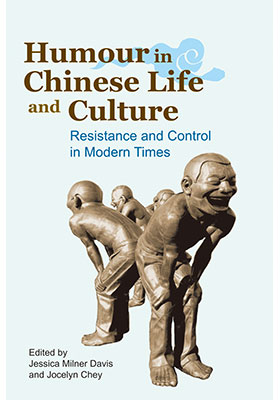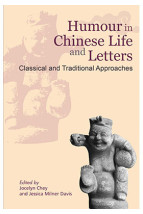Humour in Chinese Life and Culture
Resistance and Control in Modern Times
(中國當代生活與文化中的幽默:抵制與操縱)
ISBN : 978-988-8139-23-1
June 2013
404 pages, 6″ x 9″, 30 color and 19 b&w illus.
Ebooks
Also Available on
This volume covers modern and contemporary forms of humour in China’s public and private spheres, including comic films and novels, cartooning, pop songs, internet jokes, and advertising and educational humour. The second of two multidisciplinary volumes on humour in Chinese life and letters, this text also explores the relationship between the political control and popular expression of humour, such as China and Japan’s exchange of comic stereotypes. It advances the methodology of cross-cultural and psychological studies of humour and underlines the economic and personal significance of humour in modern times.
“Humour in Chinese Life and Culture takes the analysis of Chinese humour in its highly informative companion volume Humour in Chinese Life and Letters: Classical and Traditional Approaches into the modern era. It is well known that humour is extremely difficult to appreciate cross-culturally, especially when one of the cultures (Chinese) is so rich in linguistic puns and socio-political contexts. This is especially true of the modern era, when joking one day can the following day be interpreted as political subversion and the joker punished. It is simply impossible for one person or one approach to analyze modern Chinese humour successfully. The editors have wisely commissioned a group of scholars from diverse geographical and disciplinary backgrounds to write about significant aspects relating to the topic. The result is another book that should be both fun and enlightening to read.” —Kam Louie, The University of Hong Kong
“With colourful description of political and social currents and intellectual life in Chinese society providing essential context to the explication of Chinese humour in different decades, settings and modes, Humour in Chinese Life and Culture becomes, almost, an unintended short history of China since the 1920s, and one marvelously accessible, readable and enjoyable. Its revelatory historical gems are many, for example Barak Kushner’s important piece on Japan in twentieth-century Chinese humour, explaining much about how the World War II victory over Japan is an essential part of the sense of identity and the idea of “we Chinese” in today’s China. And on questions that so puzzle the West—what are people in China, now, thinking about, concerned with, debating, and what’s the nature of their discourse—there are wonderful, and some wonderfully funny, insights on today’s Chinese internet and social media, for example Christopher Rea on spoofing culture on the internet and X. L. Ding on the social meaning of freedom and political humour.” —Stephen FitzGerald, Former Australian Ambassador to China
“Highlights how well humour works as an ‘entry point’ into Chinese culture: making visible deeply rooted cultural patterns, as well as novel developments as a result of economic progress, technological changes, and increasing cultural exchange.” —Giselinde Kuipers, University of Amsterdam
“This book is a fascinating tour of Chinese humour, its contexts and history, and its contemporary manifestations on- and off-line.” —Jeremy Goldkorn, Founder of Danwei.com
“Humor is serious business anywhere. It can also be dangerous. Humour in Chinese Life and Letters, Jocelyn Chey and Jessica Milner Davis’s two-volume collection of essays on aspects of humor in Chinese literature, daily life and art over the last three millennium, is a remarkable testament to the enduring importance of humor throughout the Chinese dynasties up to the present, to elements of its continuity, and of its changes over this time.” —Asian Review of Books, 1 October 2013
“The contributors to this volume of 10 essays set themselves a daunting task: to analyse the vagaries of humour in all its configurations as an expression of culture. […] for these authors, politics and dissent are agents for humour. Sophisticated or crude, politics determine the action or reaction of individuals versus the state. This book will not make you laugh but it may enlighten.” —South China Morning Post, Sunday, 06 October 2013
“This anthology is indeed ambitious; together with its companion volume, Humour in Chinese Life and Letters, compiled by the same editors, this project covers the whole of Chinese history and the vast cultural sphere of Greater China.” —Haomin Gong in The China Quarterly
“This book is a useful sourcebook. It refrains from presenting a unified methodology or theory of humor for comparison; instead, it brings together a number of very different approaches to humor in philology, psychology and the social sciences.” —Hans Steinmüller, The China Journal






